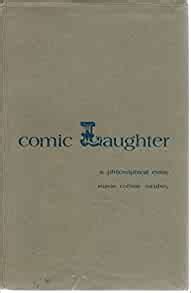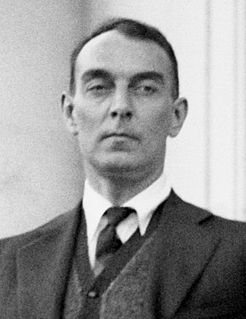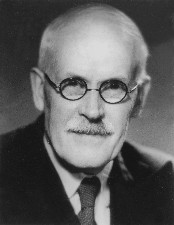A Quote by Marie Taylor Collins Swabey
While the scientist, on the one hand, is concerned with giving a faithful description of facts, on the other, he has the equally important task of construing them in relation to some explanatory conjecture. Similarly the historian has a double duty: both of reporting the past as nearly as possible as it passed or was lived through by men at the time (without doctoring up events to fit later developments or some more "enlightened reading" of them); and second, of interpreting their import in the light of a present hypothesis.
Quote Topics
Both
Concerned
Conjecture
Description
Doctoring
Double
Duty
Enlightened
Equally
Events
Facts
Faithful
Fit
Giving
Hand
Historian
Hypothesis
Import
Important
Interpreting
Later
Light
Lived
Men
More
Nearly
Other
Passed
Past
Possible
Present
Reading
Relation
Reporting
Scientist
Second
Similarly
Some
Task
Them
Through
Time
Up
While
Without
Related Quotes
The first job of the historian and of the journalist is to find facts. Not the only job, perhaps not the most important, but the first. Facts are the cobblestones from which we build roads of analysis, mosaic tiles that we fit together to compose pictures of past and present. There will be disagreement about where the road leads and what reality or truth is revealed by the mosaic picture. The facts themselves must be checked against all the available evidence. But some are round and hard--and the most powerful leaders in the world can trip over them. So can writers, dissidents and saints.
Some like them hot,some like them cold. Some like them when they're not to darn old Some like them fat,some like them lean. Some like them only at sweet sixteen. Some like them dark,some like them light. Some like them in the park,late at night. Some like them fickle,some like them true, But the time I like them is when they're like you
All good intellects have repeated, since Bacon's time, that there can be no real knowledge but that which is based on observed facts. This is incontestable, in our present advanced stage; but, if we look back to the primitive stage of human knowledge, we shall see that it must have been otherwise then. If it is true that every theory must be based upon observed facts; it is equally true that facts can not be observed without the guidance of some theory. Without such guidance, our facts would be desultory and fruitless; we could not retain them: for the most part we could not even perceive them.
There are two processes which we adopt consciously or unconsciously when we try to prophesy. We can seek a period in the past whose conditions resemble as closely as possible those of our day, and presume that the sequel to that period will, save for some minor alterations, be similar. Secondly, we can survey the general course of development in our immediate past, and endeavor to prolong it into the near future. The first is the method the historian; the second that of the scientist. Only the second is open to us now, and this only in a partial sphere.
Great abilities are not requisite for an Historian; for in historical composition, all the greatest powers of the human mind are quiescent. He has facts ready to his hand; so there is no exercise of invention. Imagination is not required in any degree; only about as much as is used in the lowest kinds of poetry. Some penetration, accuracy, and coloring, will fit a man for the task, if he can give the application which is necessary.
You can make the argument that there's no such thing as the past. Nobody lived in the past. They lived in the present. It is their present, not our present, and they don't know how it's going to come out. They weren't just like we are because they lived in that very different time. You can't understand them if you don't understand how they perceived reality.
Nations do not think, they only feel. They get their feelings at second hand through their temperaments, not their brains. A nation can be brought -- by force of circumstances, not argument -- to reconcile itself to any kind of government or religion that can be devised; in time it will fit itself to the required conditions; later it will prefer them and will fiercely fight for them.
Men spend their lives in anticipations,—in determining to be vastly happy at some period when they have time. But the present time has one advantage over every other—it is our own. Past opportunities are gone, future have not come. We may lay in a stock of pleasures, as we would lay in a stock of wine; but if we defer the tasting of them too long, we shall find that both are soured by age.
The liberties of our country, the freedoms of our civil Constitution are worth defending at all hazards; it is our duty to defend them against all attacks. We have received them as a fair inheritance from our worthy ancestors. They purchased them for us with toil and danger and expense of treasure and blood. It will bring a mark of everlasting infamy on the present generation – enlightened as it is – if we should suffer them to be wrested from us by violence without a struggle, or to be cheated out of them by the artifices of designing men.
No one was ever born without that light or flame of life. Some event, some person stifles or drowns it altogether. I was always tempted to resuscitate such men by my own joyousness or luminosity.When I break glasses in a night club, as the Russians do, when my unconscious breaks out in wild rebellions, it is against life which has crippled these idealistic, romantic men. I respect these men, cold, pure, faithful, devoted, moral, delicate, sensitive, and unequal to life, more than I respect the tough-minded ones who return three blows to one received, who kill those who hurt them.
WHEN reading my present treatise, bear in mind that by "faith" we do not understand merely that which is uttered with the lips, but also that which is apprehended by the soul, the conviction that the object [of belief] is exactly as it is apprehended. If, as regards real or supposed truths, you content yourself with giving utterance to them in words, without apprehending them or believing in them, especially if you do not seek real truth, you have a very easy task as, in fact, you will find many ignorant people professing articles of faith without connecting any idea with them.
It is possible to express the laws of thermodynamics in the form of independent principles , deduced by induction from the facts of observation and experiment, without reference to any hypothesis as to the occult molecular operations with which the sensible phenomena may be conceived to be connected; and that course will be followed in the body of the present treatise. But, in giving a brief historical sketch of the progress of thermodynamics, the progress of the hypothesis of thermic molecular motions cannot be wholly separated from that of the purely inductive theory.
































